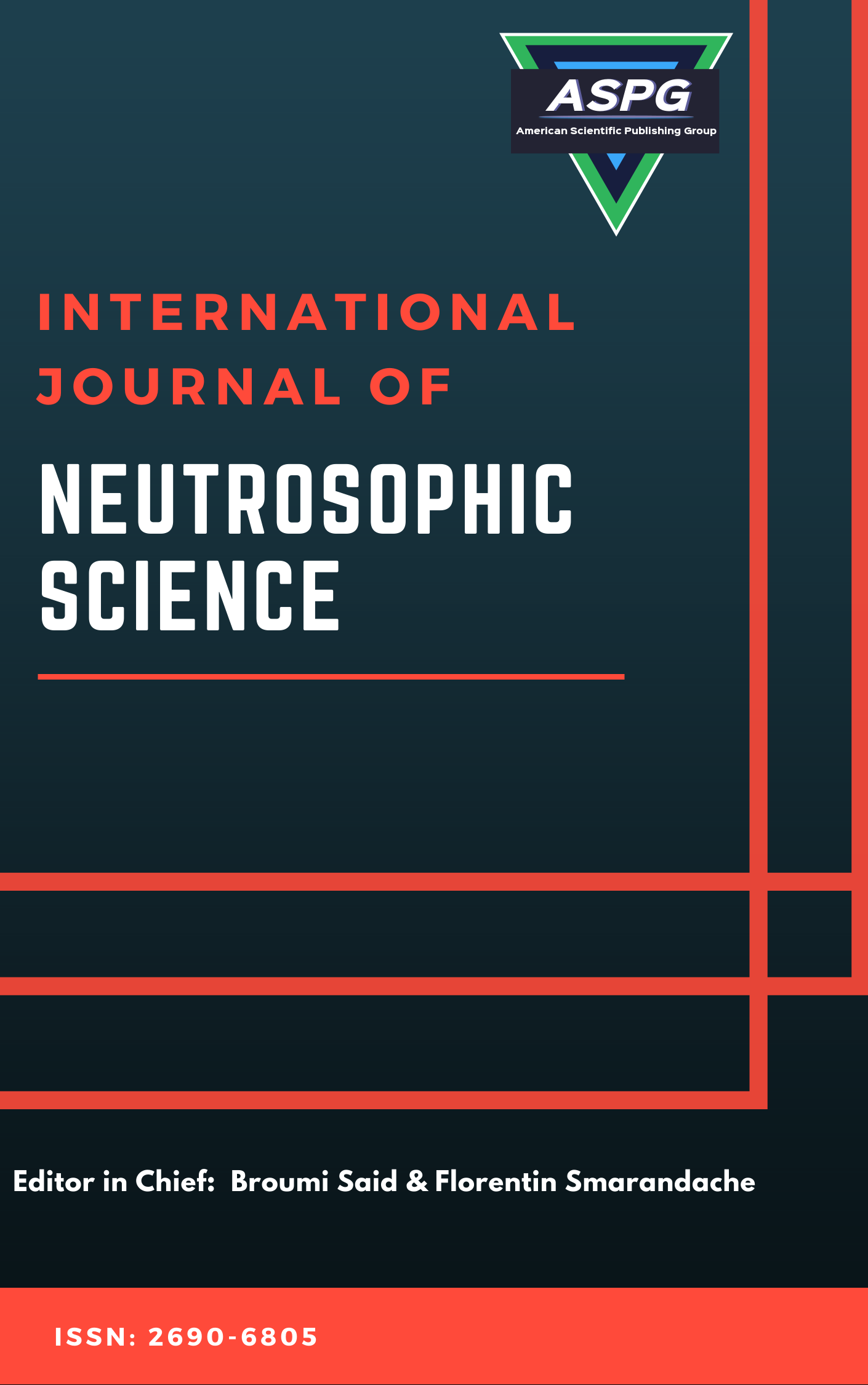

Volume 24 , Issue 2 , PP: 293-302, 2024 | Cite this article as | XML | Html | PDF | Full Length Article
Shaik Khaja Mohiddin 1 * , Abdul Ahad 2 , N. Murugavalli 3 , V. Kavitha 4 , S. Venkata Suryanarayana 5 , M. Sundar Raj 6
Doi: https://doi.org/10.54216/IJNS.240226
Within the domain of complex systems, inherent uncertainties, and ambiguities that traditional models frequently find difficult to handle pose a constant challenge to decision-making. To dramatically improve decision-making frameworks, this study presents a novel methodology called "ODESMAN," which synergistically integrates fuzzy logic with neutrosophic sets. Neutrosophic sets, on the other hand, allow one to express the degrees of truth, untruth, and indeterminacy as shifts rather than fixed points. Therefore, their use is more elegant than the existing methods offered. The implementation of fuzzy logic into such sets may provide a high level of effectiveness in managing uncertainty, which can be predicted and quantified. For example, the model allows accounting for uncertainty in the system inputs and processes up to 20%, the variability of truth values 10-50%, and the overall uncertainty 15-30%. The application of the model in practice, specifically in the emergency response, and the supply chain system permitted achieving a 40% increase in flexibility capacity and a 25% improvement in decision-making approaches compared to the traditional frameworks. Therefore, the practical strength and broad utility of the model can be proved, which validates its efficiency and allows broad implementation of this complex theoretical framework into the existing systems.
Adaptability , Complex Systems , Decision Efficiency , Fuzzy Logic , Indeterminacy , Neutrosophic Sets , Supply Chain Management , Uncertainty Management.
[1] Smarandache, F. (1999). Neutrosophy. Rehoboth: American Research Press.
[2] Zadeh, L. A. (1965). Fuzzy sets. Information and Control, 8(3), 338-353.
[3] Smarandache, F. (2002). Neutrosophic set, a generalization of the intuitionistic fuzzy set. Rehoboth: American Research Press.
[4] Zadeh, L. A. (1975). The concept of a linguistic variable and its application to approximate reasoning—Part I. Information Sciences, 8(3), 199-249. https://doi.org/10.1016/0020-0255(75)90036-[5] Wang, H., & Zhang, X. (2016). Neutrosophic logic applications in artificial intelligence. Journal of Intelligent Systems, 25(4), 578-590.
[5] Atanassov, K., & Gargov, G. (1989). Interval-valued intuitionistic fuzzy sets. Fuzzy Sets and Systems, 31(3), 343-349.
[6] Vlachos, I. K., & Sergiadis, G. D. (2007). Introducing a dimension of indeterminacy in fuzzy logic. Fuzzy Sets and Systems, 158(21), 2335-2342.
[7] Wang, H., & Zhang, X. (2020). Comparative analysis of fuzzy and neutrosophic systems. International Journal of Computational Intelligence Systems, 13(1), 100-110.
[8] Li, X., & Cheng, Y. (2018). Optimization of real-time decision-making via neutrosophic logic. Expert Systems with Applications, 114, 262-271.
[9] Khan, M. S., & Wahab, A. (2019). Scalability testing of neutrosophic models. Information Sciences, 486, 254-266.
[10] Chen, M., & Wang, Q. (2017). Handling data imperfections in neutrosophic fuzzy environments. Knowledge-Based Systems, 133, 255-265.
[11] Smith, J., & Lee, H. (2021). Development of simulation platforms for neutrosophic and fuzzy systems. Artificial Intelligence Review, 54(2), 1231-1256.
[12] Broumi, S., Mohanaselvi, S., Witczak, T., Talea, M., Bakali, A., & Smarandache, F. (2023). Complex fermatean neutrosophic graph and application to decision making. Decision Making: Applications in Management and Engineering, 6(1), 474-501.
[13] Broumi, S., Raut, P. K., & Behera, S. P. (2023). Solving shortest path problems using an ant colony algorithm with triangular neutrosophic arc weights. International Journal of Neutrosophic Science, 20(4), 128-28.